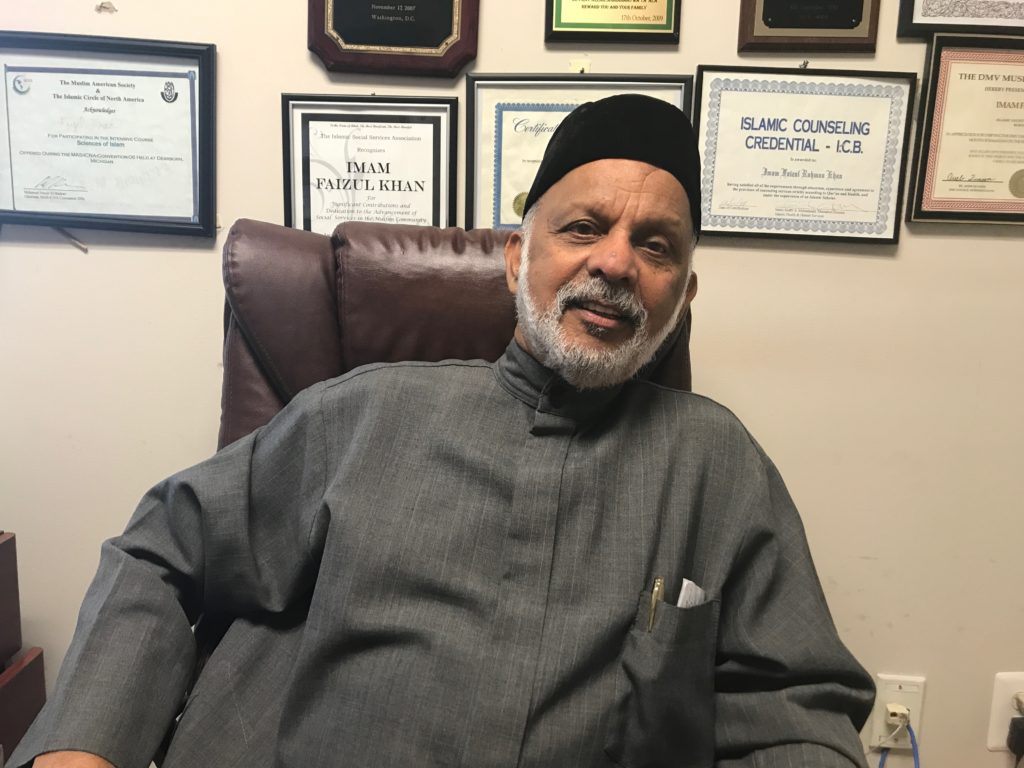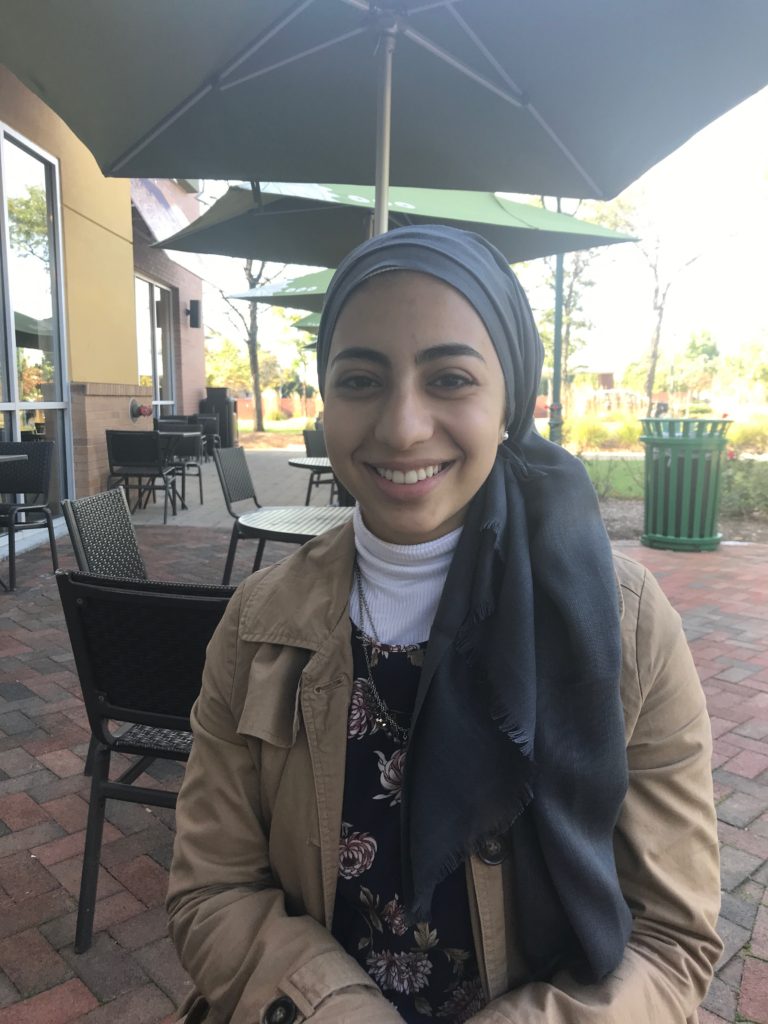ANNAPOLIS, Maryland—After President Donald Trump was elected in January, some Muslim women in Maryland decided to fight back — literally.
About 75 percent of U.S. Muslims feel that there is discrimination against their religious group and 68 percent feel worried under Trump, according to a Pew Research Center survey conducted from January to May of this year.
During the campaign, Trump called for a complete ban on Muslims entering the country and as president, his administration has crafted three travel bans that named Muslim-majority countries.
Trump issued a statement after his first travel ban in January explaining that it was not a Muslim ban and it was intended to keep America safe.
There is “a greater sense of self-consciousness if you are a woman wearing a hijab in America today,” said Shadi Hamid, senior fellow at the Brookings Institution and author of “Islamic Exceptionalism: How the Struggle Over Islam is Reshaping the World.”
Incidents of harassment against Muslims, especially women wearing headscarves, or hijabs, increased in the weeks following the election of President Donald Trump, said Zainab Chaudry, Maryland Outreach Manager for the Council on American-Islamic Relations, a Muslim civil-rights group.
Four such incidents occurred in Maryland, said Chaudry: Three on university campuses and one in a grocery store parking lot.
As a result of these incidents, “we started offering free self-defense workshops,” said Chaudry.
She partnered with Aqabah Karate, a martial arts institute in College Park, Maryland, and went to mosques around the state with certified black belt instructors offering tips to Muslims, most of them women, on how to better protect themselves.
“(CAIR) wanted to start some self-defense classes, basically to empower the community so they don’t feel scared or nervous,” said Muhib Rahman, program director and one of the teachers at Aqabah.
Rahman, 48, from Beltsville, Maryland, has a black belt in Tang Soo Do and a blue belt in Brazilian jiu-jitsu.
Chaudry called Rahman last December at the same time that Rahman was planning on developing self-defense classes of his own. “It was kind of a coincidence that they (CAIR) were thinking the same things,” he said.
Other Muslims in Maryland said they are also worried about their future under Trump.
“We are concerned the way he is targeting minorities in this country,” said Faizul Khan, 75, imam of the Islamic Society of the Washington Area, based in Silver Spring, Maryland.
Even before Trump took office, many of his statements, such as building the wall and restricting people from coming to the U.S., were “alarming,” said Khan.
“It does change things when your own president routinely says things that could be construed as anti-Muslim,” said Hamid.
Before Trump was elected, his office called the Islamic Society of the Washington Area, asking for several English Qurans for Trump’s new hotel in Washington, D.C. “We sent two boxes of English Qurans to his hotel,” said Khan.
But since that initial effort, Khan, who is originally from Guyana, South America, said Trump has not reached out.
“So far, he has not really made an effort to engage in the Muslim community,” Khan said. If he did make the effort, “we would love to have the dialogue with him.”
Khan said he is still hoping that Trump will eventually visit the Islamic Society or another Islamic center in the area.

Since January, Rahman and his wife, Ayesha Akhtar, have taught 11 self-defense classes. Five of those Rahman taught with his wife while the others, Akhtar taught alone. The women feel more comfortable with a woman teaching the classes, said Rahman.
“From January until summer, I felt like almost every week we were going somewhere,” said Rahman.
Rahman said he thinks he and his wife have trained about 400 people with the self-defense classes.
Even though anyone could attend the classes, the locations — mosques and Islamic community centers around the state — meant that almost 100 percent of the participants were Muslim, said Rahman. But he does remember training one Christian woman.
The classes had three components: spiritual preparation, mental preparation and physical preparation.
Some of the physical moves included defending yourself against someone trying to choke you and grab your wrists.
The classes, which usually lasted about two hours, were “completely basic,” said Rahman. That way, once the women left the class, they could use what they were just taught.
“It’s such a small amount of time, you really can’t train people who have never taken martial arts classes,” said Rahman.
These classes were a reaction to the messages given out by Trump, said Rahman. He said when Trump wanted to ban Muslims from arriving in the U.S., “that’s a very clear message.”
The day Trump got elected, Rahman’s 8-year-old son, Zubair, asked him if they needed to change their names.
This got Rahman concerned. “I’m not afraid,” he said, “but I feel like I had to do something. I had to act.”
In creating these self-defense classes, “we want to just teach you how not to be afraid,” he said.
One of the main points is for people to defend their personal space.
“One of the first things we would say is to put your hands up, make your personal space,” he said. “Let the people know that you don’t want them to cross your personal space.”
If people are approaching, he teaches his students to step back, put their hands up and loudly yell “STOP!”
Rahman said bullies always pick on people who seem to be afraid or nervous.
“You have to use your voice,” he said, “it’s one of your best weapons.”
This is especially crucial for Muslim women, he said, because many of them are often taught to be polite and not loud.
Even before Trump, Rahman said the Muslim community felt marginalized. With all of the wars in the Middle East, there was always a sense of apprehension toward Muslims.
“That’s always been there,” he said. “We have felt the tension.”
Hannah Shraim, from Germantown, Maryland, said she has also felt the tension.
Being an American Muslim, she said, “you’re always on the defensive with your faith.”
Shraim, who’s an 18-year-old sophomore at Montgomery College studying political science and business, said that she has never known an America where she could freely walk with her hijab and “only be judged by my actions.”

Shraim said it’s difficult living in a climate with a president who is open to xenophobic rhetoric and who scapegoats large populations of people.
In her class, whenever Islam is discussed, she said it is always in the context of extremism or terrorism.
“As a young person…trying to excel as a student…it becomes problematic because you’re always trying to think of ways to defend your faith or make it not look as bad as people are trying to make it,” she said.
The most striking thing that happened to her occurred during her senior year at Northwest High School in Germantown, when Trump was still running for president.
One of her good friends whom she had known since elementary school told her that a ban on Muslims would be “a great idea.”
“I was just kinda like, ‘Why do you think that,’” she said.
Though she initially wanted to yell and scream, she recalled, “What I tried to do with him is understand why he thought that and what his perspective was.”
Shraim’s friend told her he simply thought that there were bad people and we needed to get them out, she said.
“Psychologically, having people consistently tell you that you don’t belong here, it makes you go—it kind of makes you go crazy, especially when this is the only country you know,” she said.
Shraim said that though she was born in America and has numerous American flags at her house, “if you picture an American in your head, I’m probably not the person that comes up.”
This is the root of the problem.
In certain public places, like the Metro, she often receives intense stares. While it can feel “uncomfortable,” she said, “it kind of comes with the gig.”
Muslims have become more aware of how they appear to others, said Hamid. “You yourself become more aware of what you’re wearing and how you appear to others,” he said.
But Shraim has noticed that since Trump took office, the stares have amplified.
Her parents have noticed it too.
Shraim said that around August, her parents were leaving a Lowe’s in Germantown when a man in a truck tried to run them over. She was not with her parents.
“He went slow and when he got to my parents, he went really fast trying to hit them,” she said.
And when the truck past, the man yelled an expletive at her parents, Shraim said.
“That was frightening for me,” she said, “because my parents constantly tell me, especially when Trump got elected, ‘Be aware of your surroundings.’”
“I’ve grown with the concept that however a person interacts with me, there’s always the influence of my headscarf,” she said. “So if anything happens in an interaction where I think it’s a little off or it was a little rude, I’m like, ‘Oh, was that because I’m a Muslim? Was that because I’m wearing my headscarf?’”
“That to me is very taxing,” Shraim said.


You must be logged in to post a comment.